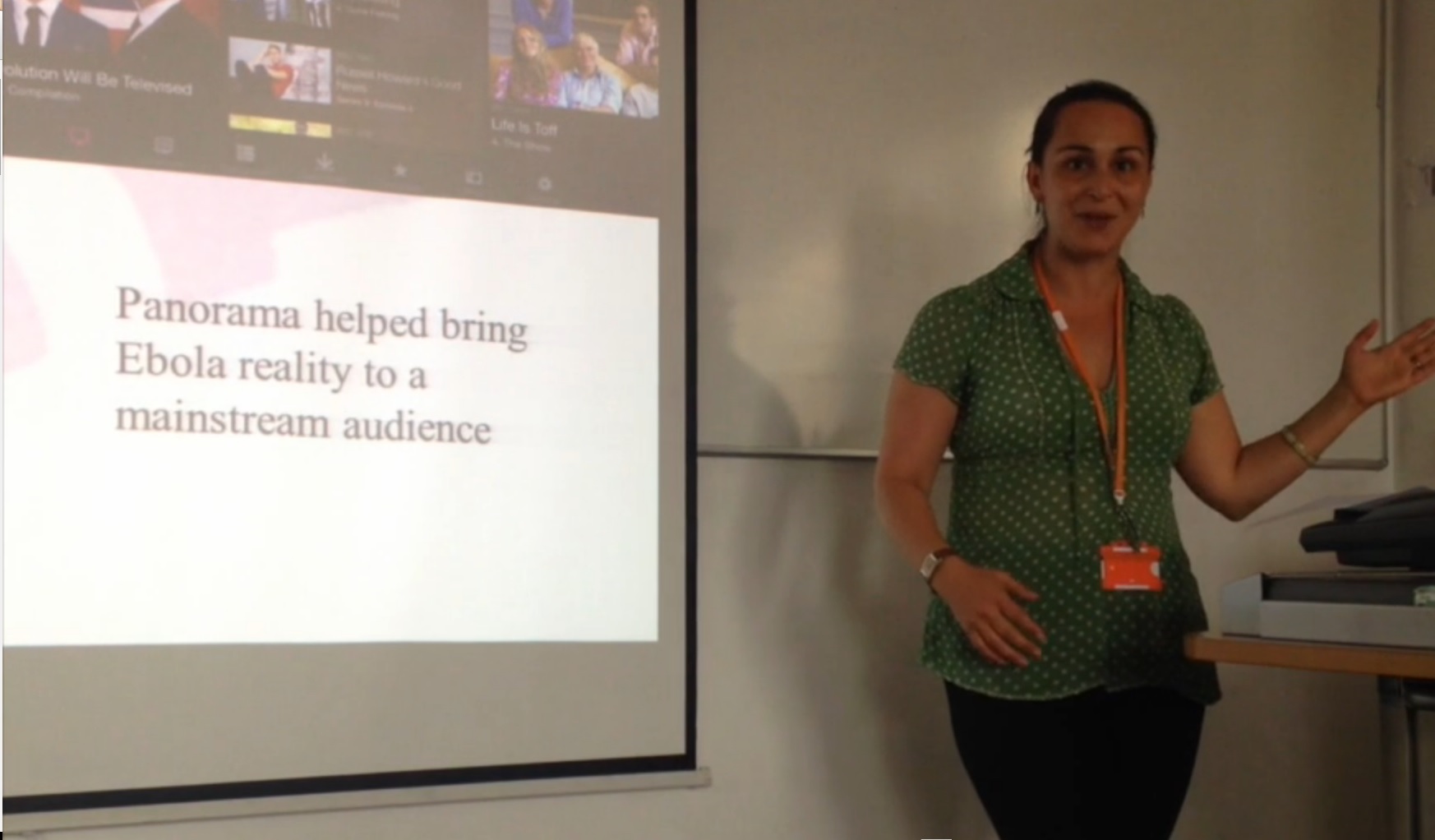“People in the PR industry don’t pick the phone up anymore and have human relationships”
 In his second special research article, George Pitcher speaks to two senior practitioners on each side of the PR/journalism divide about their work in the internet age.
In his second special research article, George Pitcher speaks to two senior practitioners on each side of the PR/journalism divide about their work in the internet age.
I co-founded and ran a public relations consultancy for 14 years until 2005. Back in those days, the classically constructed newspaper was still predominant – the PR industry, including us, were making up fancy names for what we did, but it was still essentially about selling the strength of one’s network with journalists and knowledge of how journalism worked.
The decline of hard print and the rise of digital has, some say, changed the agency game, just as it changed journalism. The information intermediary is in a different place, ‘disintermediated’ by the direct online communication of corporates, citizen journalism, social media and the blogosphere.
Meanwhile, the flight to marketing jobs from journalism continues. A couple of years ago the Press Gazette reported that more than half the graduate intake of journalists at a national newspaper (unnamed) had left for commercial jobs within two years, disillusioned by the “ripping” culture of journalism – cut-and-paste and news aggregation – that bore no relation to the reporting dream they’d been sold at journalism colleges.
The US recruitment search engine, Indeed, reported that content marketing jobs had surpassed journalism jobs in number and by preference by 2016. The effect on our quality of journalism by this brain drain of graduates has yet to be fully felt – but it can’t be good.
A temptation is to think that journalism is increasingly “staffed” by clickbait-chasers and bots, at the command of highly qualified marketers and PRs. But look around and there seem to be plenty of hard-nosed hacks as well as drones. So has the business of commercial persuasion really altered, or just adopted new technological formats? By the same token, have the smooth-talking spin-doctors of old grown irrelevant in today’s media, or have they devised new methodologies to serve their client interests?

I spoke to two senior media professionals, one on the receiving end of PR as a journalist and the other on the output side as a PR consultant. Richard Fletcher is Business Editor of The Times and Andrew Porter is a partner at the pre-eminent communications firm, Brunswick, though himself a former senior journalist at the Daily Telegraph and The Sunday Times (full disclosure: they are friends of each other and former colleagues, but were interviewed separately).
What we want to know is whether the rise of sponsored and native content, to address the failing economies of newspaper groups, has dangerously blurred the distinction between independent journalism and vested interest. Fletcher recognises the danger but is vigilant:
I’m not just saying this, but the split between church and state here at The Times is stronger than many other places. But I think you’re right. I think the PR industry thinks that there is this opportunity, because they think that people need content and they can’t pay for it, so you get “we’ve produced this graphic” or “we’ve got this thought piece”, all that nonsense, which I hardly ever use, but it’s there.
But isn’t the PR industry getting better at slipping clients’ content under the wire – and isn’t that their job?
Yes, they probably are. But actually I think people in the PR industry don’t pick the phone up anymore and actually have human relationships. They’re much more about email and they don’t actually want to have a personal interaction. They want to sell themselves as management consultants. They actually don’t like getting down and dirty and actually speaking to people like me. They’re trying to push up their fees, so they see themselves more as offering strategic advice.
From the PR practitioner side – “the light side” as he calls it with a smile – Porter takes a different view:
Perhaps you might call me one of the old media dinosaurs, but I’ve just come from a meeting this morning and we were talking about winning two big pieces of business and one of us pointed out how much this huge multinational bank actually still valued the media-handling intelligence that we can give them – which journalists are up, which are down, what’s in their heads, what are they writing, what are they looking at in the next six months. All that stuff that I think people like me, as a former journalist who maintains a strong network of journalistic contacts, can bring does remain valuable to companies. So I do think – and of course there are people that might not agree with me – that media handling is hugely important.
What Porter is reflecting is the growing role of PR in explaining and interpreting an increasingly fragmented media world for those who want to have a voice in it. And the growth in influence of the serious blogger has made that world not so much fragmented as atomised.
Blogging has become very sophisticated – and we’ve got a digital team here at Brunswick. A company can become very excited about seeing some guy Tweeting something – say it’s a property company about a particular development they’re having problems with. We’re right to flag that up and sometimes it’ll come from the client to us. Now, having this digital team, we can work out how many followers the blogger has, how many re-tweets, how many people have liked it, or impressions, or whatever. So then you’re in a position to go back to the client and say, look, it is the proverbial one guy in his underpants who has had an issue about this for 15 years. But basically he’s shouting about it in his corner, or to his three mates.
Much of the PR industry will sell clients the commercial benefits of “making a buzz in the blogosphere”, though it could be a shallow imitation of traditional media communications. Porter is in no doubt about where the real threat to corporate reputation emerges – in the escalation from blogger to newspaper:
You want to worry when you get a call from a freelance journalist who’s picked up this guy’s issue and is threatening to write about it in a newspaper that weekend. So, it’s as well to have the early warning system, but it’s also as well to see the wider picture. How often in the past have we had “Oh I’m going to go to the papers with this” – my default setting is “Well, good luck”. That’s where people like us, who have been in newspapers, can sometimes see that the best advice is to hold your nerve, because you haven’t done anything wrong here and this is just someone who’s trying to agitate – and we’ve got the answers.
These are only two, albeit senior, voices from journalism and PR. They do however mark an engaging distinction between technological progress and human discernment. Content is essentially a commodity, while mental evaluation and interpretation decide how it is traded. It’s the difference between information quantity – “garbage at the speed of light”, as management guru Tom Peters memorably described the role of the internet – and the quality of those handling it on both sides of the journalism/PR divide.
You can read a full transcript of the interview with Richard Fletcher, Business Editor of The Times here
You can read a full transcript of the interview with Andrew Porter, a partner at Brunswick here
George Pitcher advises Dow Jones, publisher of the Wall Street Journal, on ethics and the future of journalism and is a Visiting Fellow at LSE. He formerly held senior editorial positions at The Observer and the Daily Telegraph. @GeorgePitcher
All articles posted on this blog give the views of the author(s), and not the position of Polis, nor of the London School of Economics and Political Science





